Growing up, both my husband and I were giant math nerds. It came fairly naturally to me, but more than that, I really enjoyed it! So it’s definitely a priority to me to help my kids enjoy math, too, by using good math resources.
Math activities are a dime a dozen. You can find gazillions of workbooks, worksheets, printables, and games, but they’re definitely not all created equally. And while there would be no way for us to try out every available math program out there, we’ve tried a decent number. Here are our personal favorites!
This post on our favorite home math resources contains affiliate links, but all opinions are 100% my own. That means I earn a small commission if you purchase through my link, but doesn’t change your price.
Best Online Math Resources
By far, my very favorite online math curriculum is through Khan Academy. I find that it closely aligns with the standard school curriculum, so it’s easy to figure out where to start. It works great to supplement school learning, and equally well if you’re doing things on your own. My older two really enjoy that they can work ahead of grade level at their own pace, and that it explains concepts clearly.
Zearn is another fantastic option that our school uses inside and outside of the classroom. It closely aligns with set standards and makes it fun to progress. I appreciate that it has specific “Missions” to delineate major concepts to cover through the year.
K5 Learning is also excellent, although this program isn’t free. Still, the curriculum is solid and straightforward, and I like that it has an assessment to correctly place your child.
Prodigy is a perennial favorite because it almost feels like playing a math computer game. Still, it does actually focus on important math skills, and I like that it adapts to the student’s ability and understanding of specific concepts.
Finally, specific to teaching multiplication – multiplication is one of those things where memorization really is just important. Practicing math facts is really important here, and repetition is key until your child has them down cold. With my oldest, we did timed tests for each number until he’d passed them off up to 12. I just printed 1 minute drills from this site to test him. He started with some of the “easier” numbers (0, 1, 2, 5, 10), then moved to the others. (This site has online practice, but I personally prefer pencil and paper for this.) This blog post also has a good overview on how to teach multiplication. Finally, we continue practicing aloud, with workbooks, and with games (this game, also mentioned below, is great for solidifying those skills).
Best Math Workbooks for Kids
I don’t love having my kids practice math exclusively on a screen, however. I think it’s important, whether we homeschool or do traditional school, that my kids get familiar with using a pencil and paper to do basic calculations. But I also don’t want to have to print out a new page every day. Workbooks are a happy medium for us for some consistent practice.
Math Computation Workbooks
My favorite math workbooks are these Spectrum ones. They have a great mix of explaining a bit of the concepts and not rushing, but also not getting too repetitive. I do find that I need to step in occasionally to explain how to perform certain functions. However, I actually appreciate that they encourage some adult interaction so I can ensure my kids are understanding concepts properly.
These math workbooks are cheap and great for a bit of extra practice. I find that they move pretty quickly so they don’t give quite enough practice for each concept, but I think they’re great for polishing.
This math lesson book is great because it also includes video tutorials, so you can be sure you’re proceeding correctly (it’s crazy how much some methodologies have changed since we were kids!).
While I haven’t personally tried these, I’ve heard great things about this set. This is more of a full math curriculum, meaning it may be better if you’re planning to homeschool. That said, I’m certain it would still be useful for some additional practice. It’s also the curriculum we’re planning to use as we try homeschooling this year!
Fun Math Activity Books
I really like these math word problems because they teach kids to think outside of just the numbers. Part of it is puzzling, part is reading comprehension, and part is setting up the problem. And, of course, knowing how to do the computations. I really appreciate that it combines several skills and it’s great for occasional but regular practice.
These math mysteries, written by the same authors, use very similar skills. A fun way to practice several important math skills.
These math art projects and activities are some of my favorites. Such a fun way to practice geometry, spatial recognition, and component parts, especially for more tactile kids. (These math art and drawing games sound similar and really fun, although we haven’t tried this one yet.)
We don’t have this bedtime math book yet, but I just ordered it. It sounds so fun, with a little story, and with problems at varying levels of complexity for different aged kids.
I’ve shared this amazing engineering activities for kids book before in this post on educational activity books for kids, but it’s worth mentioning here, too. It uses so many fundamental math skills in a really hands on way.
General Knowledge Workbooks
These workbooks are great for overall academic practice. They have lots of sections other than math, so they’re good if you’re looking for a single workbook that touches on multiple subjects (good for a road trip if you only want to bring one workbook).
Best Computational Math Games for Kids
There are so many games out there that are fantastic for building math skills! You definitely don’t need to only do “math specific” games in order to build those math muscles. Still, I do like having a few on hand to practice numeracy, one-to-one correlation for younger ones, quick addition/subtraction/multiplication/division, and puzzling skills. I also prefer to have some games that aren’t done on a screen to get some of that tactile practice, as well.
- This is one of my very favorite math games. It not only requires lots of computation practice, but it’s fun to try to figure out each puzzle. Some are easy enough for early elementary kiddos, but the difficult ones are definitely challenging even for adults!
- Dice are always great, and this game is fast-paced and great for quick computations.
- There’s a reason this game has nearly 3500 5 star reviews. It’s addictive and has lots of addition practice.
- I haven’t tried this one personally, but I’ve heard fantastic reviews. It has a number of games to teach arithmetic and logic. Definitely one I’ll be purchasing!
- This is a fantastic one for older elementary and middle schoolers.
- Sequence Numbers is perfect for addition and subtraction.
- This is such a great one for kids as young as preschool, but still fun for older kiddos, too.
- A great one for younger kiddos with number recognition.
- Sum Swamp is great for addition/subtraction practice.
- I Sea 10 is particularly good for addition.
- Another great one for younger kiddos!
- This one is slightly more complex and best for older elementary kids and middle schoolers.
- A classic for a reason!
- These cool math games include a variety of dice and card games.
- This multiplication machine is great for some solid math facts practice.
- Tiny Polka Dot is a new one to me that has terrific reviews!
Other Math Games for Kids: Problem Solving, Spatial Sense, Memory
There are plenty of other games that don’t specifically work on computation, but are excellent for building math skills like spatial understanding, geometry, puzzling skills, memory, etc. Here are some of our favorites:
- Qwixx is great for building those strategy muscles
- We love Qwirkle – it’s great for kids and adults, and allows even the youngest players to practice pattern and color matching.
- There’s a reason Memory has stood the test of time. This is a fun derivative of it.
- Set is another favorite card game that’s great for a wide age range and good for pattern recognition.
- Telestrations
- Sushi Go Party
- Spirograph
- Can’t forget Monopoly!
I hope this was helpful to hear our family’s favorite math resources for kids. Which ones are favorites in your home? I’d love to hear any we’re missing in the comments!
IF YOU LIKED THIS POST ABOUT OUR FAVORITE MATH RESOURCES, YOU MIGHT LIKE THESE POSTS TOO:
- Best Educational Kid Activity Books
- Teaching Your Child To Read: Tips for Encouraging a Reluctant Reader
- Our Favorite Kids Books About the World


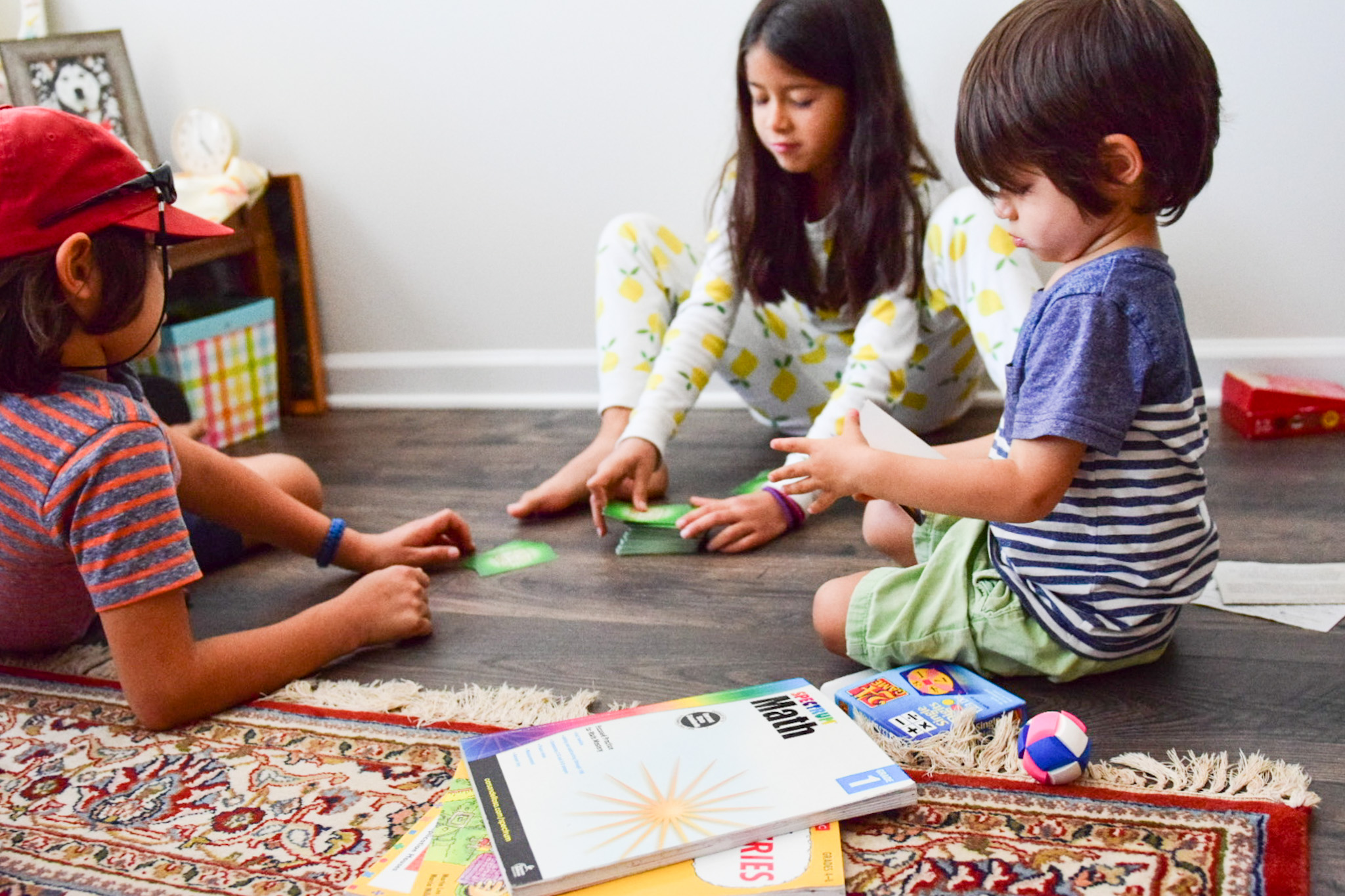
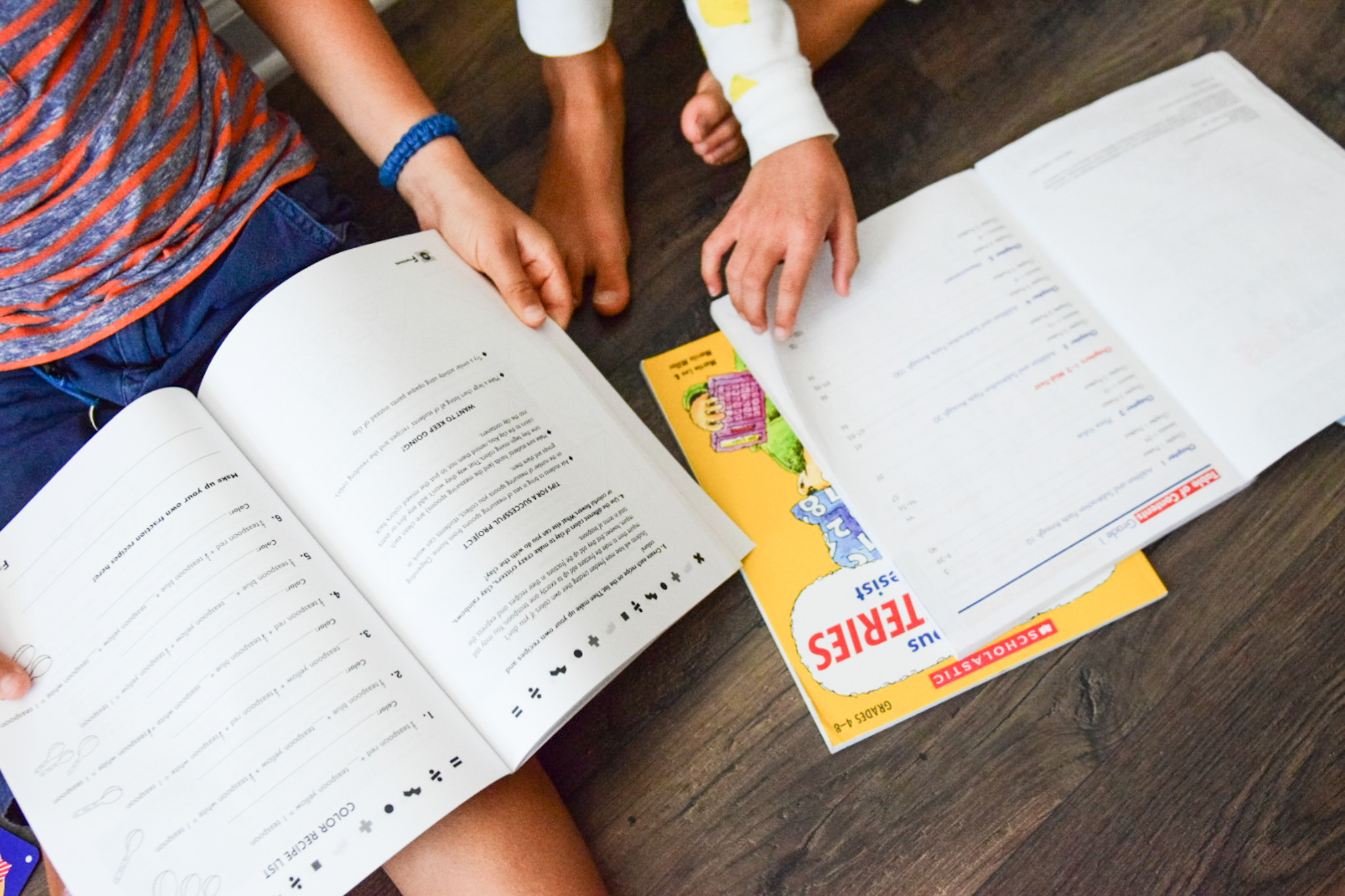
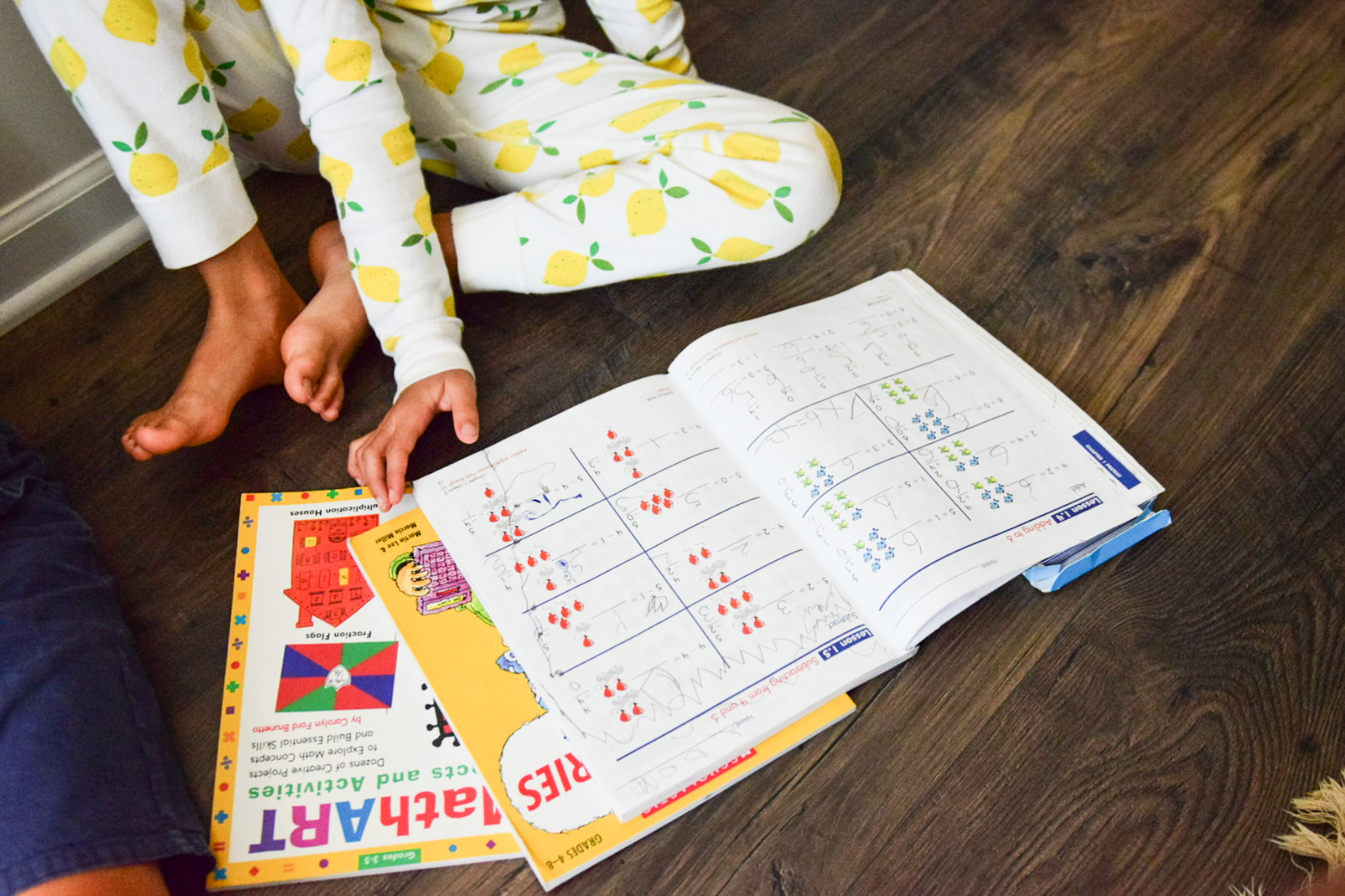
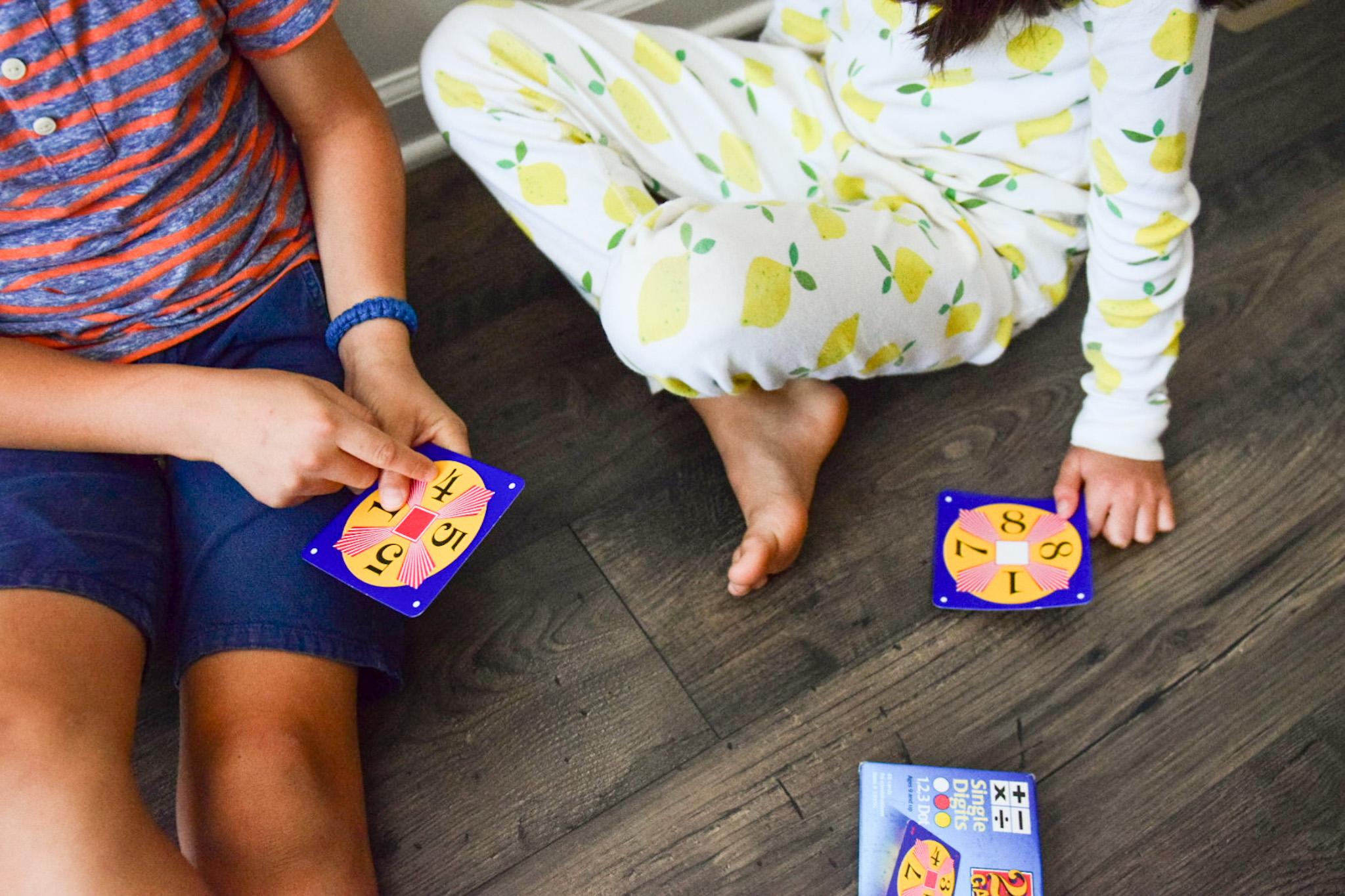
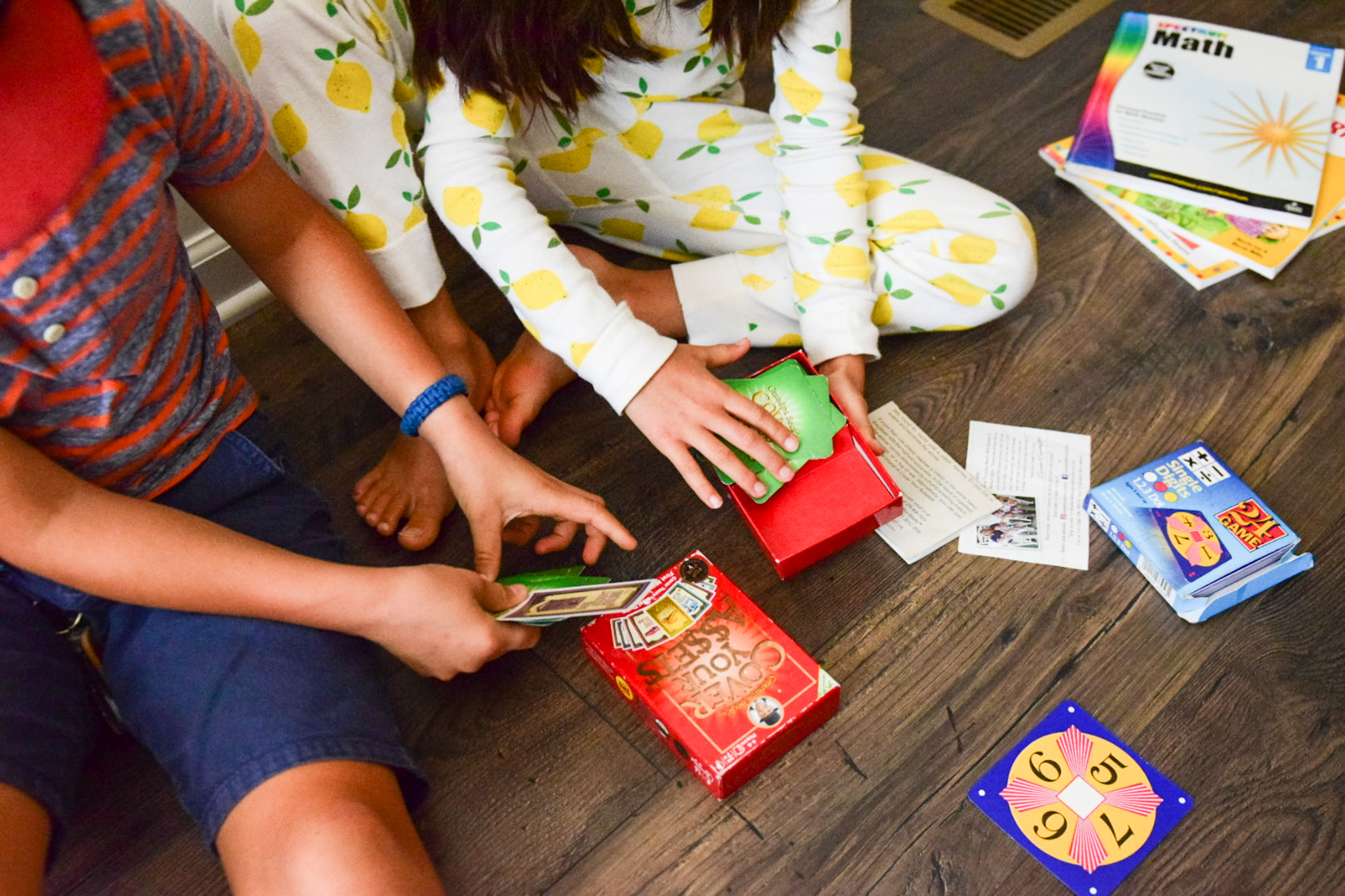
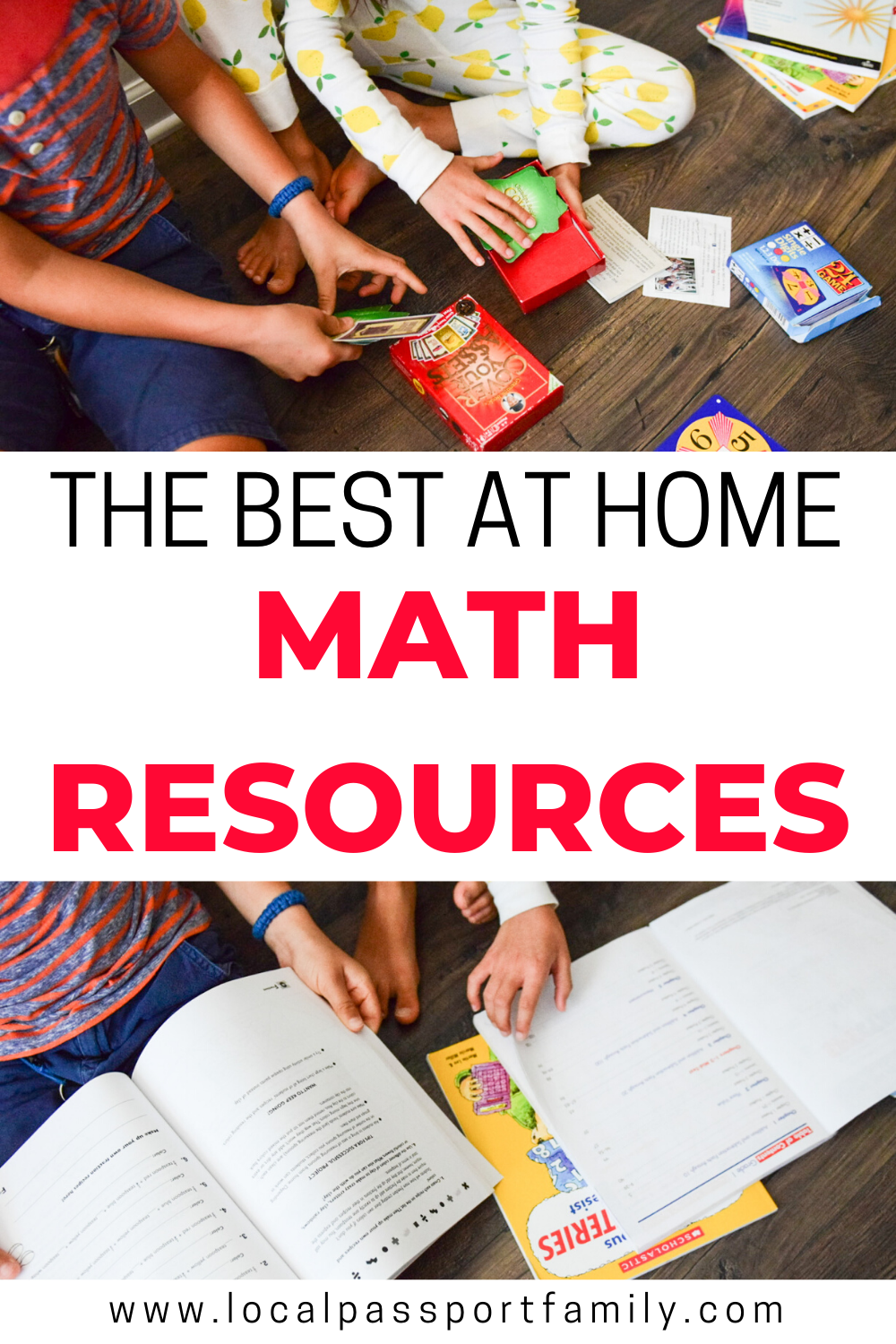









[…] Our Favorite Math Resources For Kids […]
[…] excited we’ll have the flexibility to change things up as we go! I already shared a bunch of math games, activities, and resources that we’ll include, so I’ll focus this mostly on science, technology, and […]
[…] in the RV, the world is our classroom! We do our normal math, STEM, and other homeschool curriculums, and read and listen to lots of books, but we also learn by […]
[…] can find all our favorite educational math games for kids right […]
[…] Our Favorite Math Resources For Kids […]